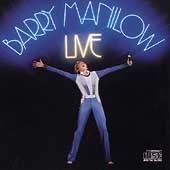When I was a teenager, I joined one of the record clubs that advertised in the Sunday newspaper. You may remember the pitch: pay one penny for a dozen records or cassette tapes (yes, it was that long ago…) But once you signed up you had to buy a dozen more records at regular prices. Still not that bad a deal, with one catch.
You may remember the catch as well. They sent you a card every month with a promotion for a newly released record. Unless you sent back the card within a couple of weeks, they automatically sent you the music, along with a bill for it. Well-organized, efficient people sent back the card most months, and instead picked out the music that they wanted for the next three years. Me, I ended up with a lot of music I never wanted, which is just what the record companies were counting on. So that’s why I’ve still got all those Manilow and Carpenters cassettes in the back of my closet.
Fast forward a couple of decades to the fight over Proposition 75. And the same dynamic is at play: a large organization counting on the passivity of its members to pad its bank account. In today’s San Diego Union-Tribune, here’s what the unions are saying:
"The practical effect comes when you talk about human nature," said Carroll Wills, spokesman for the California Professional Firefighters. "When you are obliged to send out or deliver a message saying you need to sign this before we can do it, stuff gets left on the counter, left with the junk mail."
In other words, the people who run California’s public employee unions know their survival relies on the natural passivity of their putative supporters. If their members were sufficiently motivated and passionate to contribute money for their political agenda, Prop 75 wouldn’t be a problem in the slightest. But they know that most public employees only donate because it’s too much trouble not to. That’s not a very solid base to build a political movement — unless you don’t have to bother asking for the money at all. In which case, it’s the ultimate in fundraising efficiency.
The union leaders argue that corporate California would would gain a huge advantage from 75’s passage. But the biggest winners would be those union members who won’t have to worry about why they’re paying for the political equivalent of "Manilow Live" each month.

